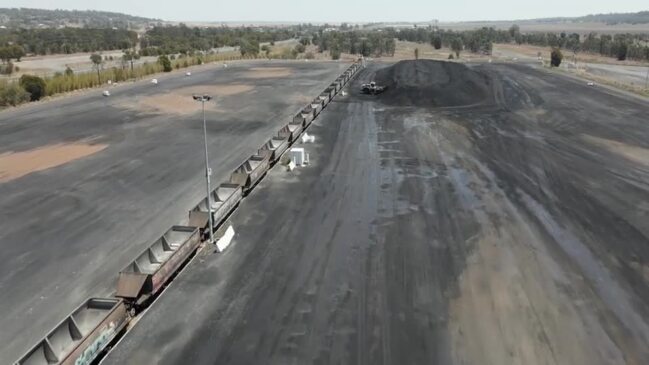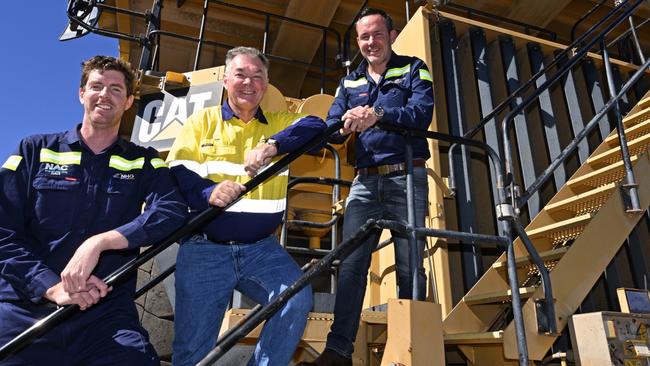New Hope positive despite a green legal challenge to its coal expansion
New Hope Group believes the outlook for its coal business is positive even though it’s embroiled in an environmental challenge to the expansion of its Queensland operation.

Coal miner New Hope Group says the outlook for its business is positive despite an ongoing environmental challenge to its Queensland operation.
New Hope, which managed to sell the first coal from New Acland Stage 3 project in southern Queensland despite the legal battle, reported saleable coal production of 4.1 million tonnes in the six months to the end of January, an increase of 28 per cent over the previous corresponding period.
Underlying earnings before interest, taxes, depreciation and amortisation shrank to $424.8m, less than half the $1.1bn in the previous corresponding period.
Net profit after tax declined to $251.7m, from $668.6m. The group will pay a 17c dividend on May 1.
New Hope chief executive Rob Bishop said strong margins were maintained despite coal prices retreating from record highs.
“Our low-cost coal assets and targeted organic growth will favourably position New Hope to take advantage of the demand for high-quality coal expected through the energy transition,” Mr Bishop said.
He said that while coal prices had come off “crazy highs,” cash generation was positive.
“If we look at EBIT (earnings before interest and tax) last year it was $1.7bn and this year it is probably going to be around about a billion or maybe just shy,” Mr Bishop said.
“So that is still a phenomenal year and that’s off the back of softening prices. So I guess what that tells you is we still generate significant margins. If we pushed out a billion dollars every year we’d be pretty happy.”
Mr Bishop said coal prices were likely to start to creep up rather than down, helped by demand from China and colder weather in the northern hemisphere.

“We’ve had two pretty wild, wild winters but can you expect another one of those this year? You probably assume not, but you never know,” he said.
New Hope has been a frequent target of environmentalists, and a long-running legal battle over the expansion of New Acland is continuing. Mr Bishop said that companies that responsibly managed operational impacts on the environment were the “most appropriate operators to produce the coal that will be required through the energy transition”.
The Oakey Coal Action Alliance, through the taxpayer-supported Environmental Defenders Office (EDO), is seeking to overturn the Queensland government’s decision to grant New Hope’s New Acland Mine Stage 3 an associated water licence.
The challenge, which will be heard in the Land Court later this year, comes despite the state government and numerous independent experts finding the project stacks up environmentally, socially and financially.
Mr Bishop said that despite the legal challenges impacting its New Acland expansion, he was “pretty positive” about outlook for the mine. “Our view is we’ve got our approvals now and we’re getting into it and wrapping up as quickly as we can,” he said.
“So we’re back in the court later this year and this times it’s around the water licence. You know, we’ve done significant water modelling with a number of different technical experts so we’re comfortable with our position and we think the court will be comfortable with our position.
“It’s more of a distraction and certainly not the focus.”
Mr Bishop said the most visible impact of coal mining was on the land, and the company continued to operate its agricultural businesses adjacent to the mine sites while undertaking progressive rehabilitation to limit future liabilities.
It also was looking at a renewables energy park at New Acland to provide solar and wind power to the grid.
He said that in terms of greenhouse gas emissions, the company’s Bengalla mine in NSW was now subjected to a mandated annual 4.9 per cent reduction target in greenhouse gas emissions to 2030 under the “Safeguard Mechanism”.
The policy, introduced in 2016, imposes limits on the largest greenhouse gas-emitting industries and facilities.





To join the conversation, please log in. Don't have an account? Register
Join the conversation, you are commenting as Logout